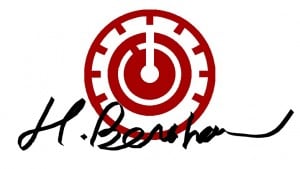Citoyens, vouliez-vous une révolution sans révolution?
Citizens, did you want a revolution without revolution?
Maximilien Robespierre
First, I would like to repeat wishes for a Happy New Year and all the rest of that business that took place between posts.

In considering my next opinion article at the global news website Press TV, there are several topics I may choose to address. One is the movie, The Interview, and the cyber-attack on Sony that is alleged to have been a retaliation by North Korea over this movie. I already addressed this, reacting primarily to the mainstream coverage of the issue, at this blog. Even unknown to as big of a sceptic as me at the time I wrote the previous post, the facts tell a very different story. The FBI and the rest of the American government, as well as their intertwined corporate parrots in the mainstream press, have instead chosen the path of demagoguery and lies by once again pointing the finger at a country they don’t like (Iraq, Iran, North Korea, blah, blah) and ignoring the fact that this cyber-attack came from inside their own country. Experts say it was almost certainly launched from or at least masterminded within the United States, by Americans with direct access to the computer systems that were affected.
Revising knowledge structures, dismantling arrogant power rhetoric will make world #peace: my latest @PressTV op-ed http://t.co/3YhhCtYIiO
— Harry J. Bentham (@hjbentham) December 7, 2014
Now it has foolishly prematurely pointed the finger at a random adversary, North Korea, as it did against Iraq on many occasions in the past, the US government has no choice but to march the public off to war again based on a pack of lies before any of the facts are actually in, and it has had to stampede all the actual security experts out of the room to do it. The government’s foolish investigators have prematurely said this was an attack by another country to feed the sensationalist media, when it was actually an attack by hackers in the United States. However, it’s too late for the Obama administration to turn back from its mistake now. To admit that an apparent attack from another state was actually an attack by hackers within the US would be an image-cracking display of the regime’s own incompetence and a much-deserved humiliation for America’s presently backward and useless model of so-called “national” security.
When Americans think they are laughing at North Korea’s alleged despotic behaviour and paranoia through a comedy film such as The Interview, the perverse reality is that they are propagating their own crazy regime’s program of paranoia, the worship of government authority figures, and military parades. The fragile, image-conscious American regime, much like North Korea, is desperate to point its finger at foreign enemies. This may be because of its internal crisis: its own social cohesion is deteriorating, the authorities are increasingly hated and rejected by their own people, and the level of outright incompetence in the FBI and other US government agencies supposedly keeping Americans “safe” is so high that almost all US security thinking is oriented around correcting the mistakes of its own staff. The failure to pinpoint responsibility for the attack on Sony and premature accusations against North Korea are yet another example of the US government’s lack of expertise and hiccups of incompetence by poorly informed security officials becoming the very raison d’etre of a major US foreign policy shift.
The US government will be as afraid to admit that it was mistaken when accusing North Korea of the Sony hack as it will be about admitting it can be attacked from within and utterly fail to find the attackers. In that fear, it can be expected to propagate fairy tales about a heroic national struggle against foreign villains, hackers and subversives infiltrating its country and its computers. The so called Code War – a term derived from the old “Cold War” expression to refer to some kind of long-term global cyber-war between opposing powers – is not actually being waged between nation-states as much of the media tries to portray it, but between states plus other monolithic entities such as Sony, and their own people searching for revenge.
Computers smash traditional hierarchical power structures, and create vulnerabilities for the powerful. These vulnerabilities lead to the humiliation of what appeared to be powerful corporations and regimes, and the humiliation leads to cover-ups, lies, misinformation, and anything else that will let the monolithic organization or regime get back its image of strength. Fabrications and fallacies presented to blame North Korea for the attack on Sony are an example of that subterfuge aiming save the US government’s crumbling public image. As happened after the 9/11 attacks, the US has a serious propaganda problem whenever it appears to have been successfully attacked by a tiny, ill-equipped adversary. Governments will lie to everyone, so they can look like the victims of some kind of big bully in the media, and that means always exaggerating the opponents’ strength and size. 19 hijackers become the world’s most formidable global terrorist organization; now a kid in his basement or a laid-off Sony employee becomes North Korea.
One might be reminded of how the US raised the alert level and scrambled its nuclear bombers after a lone gunman killed JFK, with media speculation quickly blaming Russia for the assassination as if deliberately trying to push the world further towards nuclear war. Unfortunately, many Americans seem unable to accept that their country can be shaken by one saboteur or assassin; they need there to be a conspiracy. It is in this spirit, too, that US senators try to depict Edward Snowden as a Russian double agent rather than a disillusioned individual who simply turned his back on the disgraced state and its secret police.
I believe all of this behaviour can only be the result of arrogance. If one has an over-exaggerated sense of power and moral authority, one will only believe in the most powerful and the most depraved enemies, and simply deny the existence of other forms of opposition. Both Sony and the US government will deny they have enemies within, but they do.

